Václav Havel
Birth : 1936-10-05, Praha
Death : 2011-12-18

Self (archive footage)

Self - President of Czechoslovakia (archive footage)
With the help of more than 10,000 dedicated Zappa fans, this is the long-awaited definitive documentary project of Alex Winter documenting the life and career of enigmatic groundbreaking rock star Frank Zappa. Alex also utilizes in this picture thousands of hours of painstakingly digitized videos, photos, audio, writing, and everything in between from Zappa's private archives. These chronicles have never been brought to a public audience before, until now.

Self - Friend (archive footage)
A moving account, in his own words, of the personal life and work of the brilliant Czech filmmaker Miloš Forman (1932-2018): his tragic childhood, his major contribution to the cultural movement known as the Czech New Wave, his exile in Paris, his troubled days in New York, his rise to stardom in Hollywood; a complete existence in the service of cinema.

Self (archive footage)
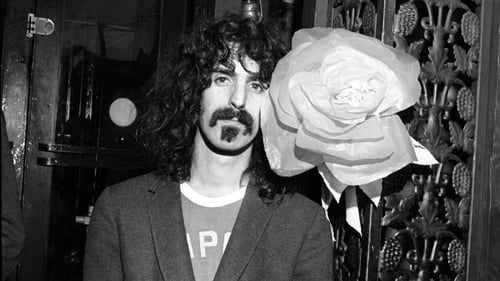
Himself
Utilizing potent TV interviews and many forgotten performances from his 30-year career, we are immersed into Frank Zappa’s world while experiencing two distinct facets of his complex character. At once Zappa was both a charismatic composer who reveled in the joy of performing and, in the next moment, a fiercely intelligent and brutally honest interviewee whose convictions only got stronger as his career ascended.

Himself (archive footage)
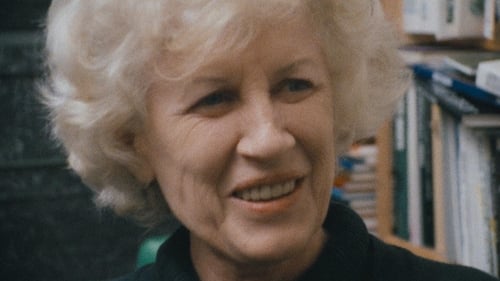
Self

Himself

himself
A provocative snapshot of the world we live in. It is a well-known fact that our society is structured like a pyramid. The very few people at the top create conditions for the majority below. Who are these people? Can we blame them for the problems our society faces today? Guided by the saying “A fish rots from the head” we set out to follow that fishy odor. What we found out is that people at the top are more likely to be psychopaths than the rest of us.

jako host
The movie is based on the narrative of a Czech multimillionaire who achieved success not by stripping companies, making crooked deals and crony-ism, but by blazing his own trail like Schweikesque self-made man. He realizes early on that he has nobody but himself to rely on. During the totalitarian regime of the 80s, he ambles along his oddball path and then experiences the Velvet Revolution atypically, too - in an asylum amidst nut-cases. After the Revolution, he really gets rolling. To Germany and back. To prison and back. To China and back. The intriguing and endless opportunities afforded by the Internet eventually blossom into virtual prosperity. The hero has everything and is even planning a highly unorthodox family. A happy ending is nigh, until everything goes up in smoke, of course...

Director
A bitter sweet comedy that follows a highly appointed Chancellor who set to step down from his position after years of service to his country. With just two last days left to enjoy his palatial villa before he is finally evicted, his situation gradually goes from bad to worse.

Writer
A visual dreamscape of Prague streets, a hallucinatory vision of a world from the operating table for robotic heart surgeries, collaged together with the stories narrated by the mysterious Dr. B, who is a gifted surgeon at the centre of a conspiracy and a criminal ring trafficking in human parts, especially hearts. Because that’s where the world has ended up – humans thirsting for endless lives and shadowy businessmen and dealmakers taking advantage of this hunger. Set to original music by Němec’s student and fellow filmmaker Petr Marek and his band Midi Lidi, the rich soundscape of the film creates a distinct counterpart to the freewheeling visuals shot digitally in 3D. The former Czech president Václav Havel makes an appearance in the film recalling a script he wrote in the 1960s with Němec, his distant cousin, which the present film utilises as a reflecting surface.

Himself

Self (archive footage)
Hammer & Tickle: The Communist Joke Book is a 2006 propaganda documentary film about "jokes" under the Soviet Union.

This quirky documentary follows Vaclav Havel on an eye-opening journey across his native Czechoslovakia in the days before he became president of the Czech Republic. A leading playwright, essayist, intellectual and political dissident in 1985, Havel decides to explore the limits of the secret police by traveling and visiting a variety of friends. Along the way, he's thrown in jail twice and followed by hundreds of undercover cops.

Václav Havel
Taking a cue from Franz Kafka's "Letter to My Father," this highly personal film follows Czech director Jan Nemec as he attempts to engage in a dialogue with his deceased mother. While alive, Nemec's mother had a troubled relationship with her son; this rumination seems to be Nemec's public platform for coming to terms with unresolved familial issues. The director embellishes his film by linking personal events with 20th century history.

Himself
A gripping documentary about the courage and determination of a young English stockbroker who saved the lives of 669 children. Between March 13 and August 2, 1939, Nicholas Winton organized 8 transports to take children from Prague to new homes in Great Britain, and kept quiet about it until his wife discovered a scrapbook documenting his unique mission in 1988. Winton was a successful 29-year-old stockbroker in London who "had an intuition" about the fate of the Jews when he visited Prague in 1939. He quietly but decisively got down to the business of saving lives. We learn how only two countries, Sweden and Britain, answered his call to harbor the young refugees; how documents had to be forged and how once foster parents signed for the children on delivery, that was the last he saw of them.

Self
Meet The Plastic People of the Universe, the avant-garde, jazz-rock, Sun Ra meets Velvet Underground, Czech revolutionaries. A tribute to the band that against all odds used the power of their music to help topple their oppressive government.
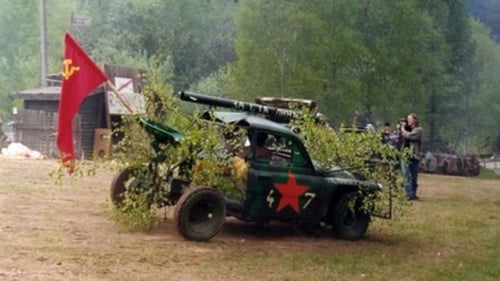
A labyrinthine portrait of Czech culture on the brink of a new millennium. Egon Bondy prophesies a capitalist inferno, Jim Čert admits to collaborating with the secret police, Jaroslav Foglar can’t find a bottle-opener, and Ivan Diviš makes observations about his own funeral. This is the Czech Republic in the late 90s, as detailed in Karel Vachek’s documentary.

Self
An incredible retracing of the evolution of Reed's remarkable career over three decades. Filled with interviews with Reed, his friends and some of the major artists influenced by Reed including David Bowie, David Byrne, Patti Smith, Suzanne Vega, Dave Stewart, Philip Glass and more. Production Notes, Biographies, Discography, Scene Access, Screen Test, Rare Velvet Footage

Self
Quite a few years have passed since November 1989. Czechoslovakia has been divided up and, in the Czech Republic, Václav Klaus’s right-wing government is in power. Karel Vachek follows on from his film New Hyperion, thus continuing his series of comprehensive film documentaries in which he maps out Czech society and its real and imagined elites in his own unique way.

Self (voice)
Fierlinger concentrates his considerable talents as an animator to recount through fragmented memories, vivid recollections, and the occasional evocative photograph his life as the rebellious son of Jan Fierlinger, Czechoslovakian career politician.

Writer

Script

A first-hand account of the tumultuous events of 1989 when a student-led revolution succeeded in overthrowing Czechoslovakia's repressive Communist regime. The film, which includes rare government and underground footage, follows the lives of three Czechoslovak students whose leadership helped ignite the 'Velvet Revoution' and eventually establish a democratic government. Directed by Oscar-winner Allan Miller, it features interviews with students, activists and the country's new president, Vaclav Havel.

Writer
Unlike any other opera, the so-called Beggar's Opera is not just one composition, but a lineage of adapted compositions, beginning with the original hugely successful 1728 political satire written by Englishman John Gay. Composers and writers have penned variations on it ever since. The most famous of these was A Threepenny Opera by Bertholt Brecht and Kurt Weill. Some things these compositions share in common is their setting among the poor and criminal classes, and the roguish character Macheath. This production is based on an adaptation of Gay's original by Vaclav Havel the freedom-fighter, writer and philosopher who became the first (and only) president of the united post-communist country of Czechoslovakia, and it retains many traces of its theatrical origins. Film reviewers were not too tolerant of what they called "slavish adherence" to the noted Czech writer's stage production, but theater, philosophy and history buffs may feel otherwise.

Theatre Play
A fictionalized autobiographical play written by Czechoslovakian playwright-turned-president Vaclav Havel in 1984 upon his release from a four-and-one-half-year prison term for political subversion. The play focuses on two days in the life of a dissident writer who is awaiting the knock at the door that may send him to prison.
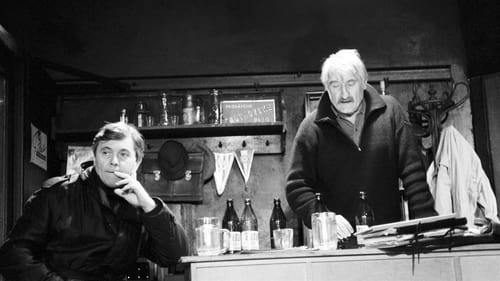
Theatre Play
A theater play by Václav Havel.

Writer
A dissident Czechoslovakian playwright awaits trial for his activities against the current political regime.

Theatre Play
After imprisonment, Vanék can only take the worst work on a small village brewery.

Czech semi-documentary.

Writer
Two TV Plays by Vaclav Havel, one called 'Audience', and one called 'Private View'.

Self

Self
Documentary about the film academy in Prague and the Czech Film in 1965.
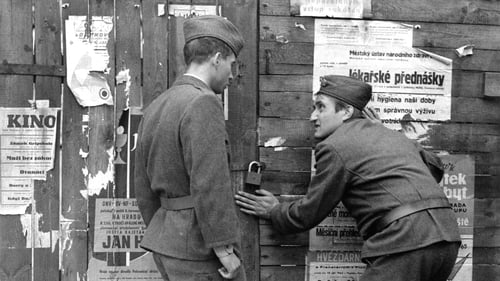
trpěliví
Jurácek's feature debut is shot in two parts. In the first, a corporal accompanies a new recruit with a sore Achilles tendon for his physical, and all the girls or young women they see are played by the same actress (Ruzickova). In the longer second segment, shot with the help of the Czechoslovakia army, the soldiers pass the time during basic training and maneuvers by talking about girls.

Dramaturgy
The work of actors on a stage makes a dreamlike parallelism between artistic immagination and the concreteness of everyday life. Tribute to Prague's Divadlo na zàbradlì, theater that has been a point of reference for Theater of the Absurd in Czechoslovakia in Sixties

The work of actors on a stage makes a dreamlike parallelism between artistic immagination and the concreteness of everyday life. Tribute to Prague's Divadlo na zàbradlì, theater that has been a point of reference for Theater of the Absurd in Czechoslovakia in Sixties

Writer
The ruined castle is inhabited by architects who, feeling the spirit of the place, want to direct the modernization of the settlement below the castle from here. Despite the residents' protests, the architects want to make the people happy by force.






















